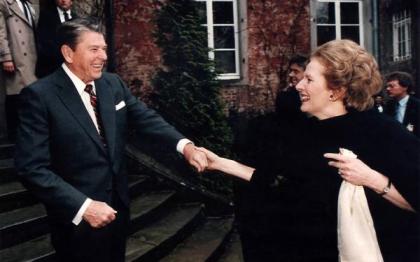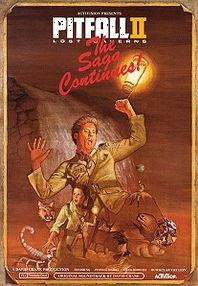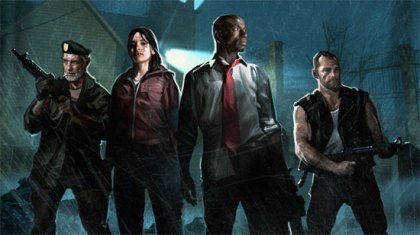
In a recent piece over at Bitmob, Christopher Quach discussed the validity of conveying political messages in videogames, essentially concluding that the industry’s reputation as disposable entertainment, along with its desire to cater to as wide an audience as possible, precludes it from ever engaging in political discourse.
It is an interesting piece, well argued and certainly representative of the majority of mainstream opinion, but it is also flawed in a number of ways.
Perhaps most obviously the piece overlooks the work of many independent videogame developers. Games like Cutthroat Capitalism, Kabul Kaboom! and Super Columbine Massacre RPG! go some way to challenge the idea of an apolitical videogame landscape. With varying degrees of success and tastefulness, these modestly sized games use the medium to communicate overtly political statements, encompassing military, economic and social issues. There are many more examples out there.
That these games operate on the peripheries of the industry should come as no surprise. The same is true of all media, where overt political statements are best explored on the margins. But that doesn’t mean that mainstream games are bereft of political content, anymore than big-budget movies or the best-selling comics and novels.
Videogames, as cultural artifacts, are unescapably political. Even the most vacuous of games, despite their ostensible mindlessness, cannot fail to reflect the politics of the culture in which they were produced.

Take this example. In the Eighties, western politics were dominated by two figures; Ronald Reagan and Margaret Thatcher. The US President and the British Prime Minister’s relationship was a close one, due in large part to their advocacy of a particular brand of conservatism. Though they chose to express these beliefs in slightly different ways, their ideology was the same.
This quote from Margaret Thatcher conveys the message most concisely;
“There is no such thing as society. There are individual men and women, and there are families. And no government can do anything except through people, and people must look after themselves first. It is our duty to look after ourselves and then to look after our neighbour.” (M. Thatcher, Woman’s Own, October 31, 1987)
What Thatcher is trying to communicate here is that a successful country, indeed a successful world, is the direct result of individualism. Do not rely on others, just be the very best you can be and everything will fall into place. In short, look after yourself.
Similarly, Reagan’s ‘Social Darwinism’ embraced this notion of the individual, perhaps most obviously in the field of economics. Reagan stimulated the entrepreneurial realm by rewarding it with economic gain, while simultaneously cutting several welfare programs. The message was just the same as Thatcher’s; strive for personal glory, for individual gain. Look after yourself.
This is the reason that Gordon Gekko, the “greed is good” protagonist of 1987 film Wall Street, is rightly identified as a symbol of the decade. He was primarily self-serving in his quest for power and wealth.
 You can see this notion reflected clearly in the western videogames of the period, although in a less sophisticated way. The vast majority of these games employed a lone hero protagonist. While co-op games existed and were technologically possible, single-player reigned supreme. Regardless of the narratives and their sci-fi/world war/fantasy archetypes, the central political message was the same; You and you alone are capable of saving the world. Do not rely on help, do not rely on others – success, glory, riches, empowerment – all of this will come through your individual efforts.
You can see this notion reflected clearly in the western videogames of the period, although in a less sophisticated way. The vast majority of these games employed a lone hero protagonist. While co-op games existed and were technologically possible, single-player reigned supreme. Regardless of the narratives and their sci-fi/world war/fantasy archetypes, the central political message was the same; You and you alone are capable of saving the world. Do not rely on help, do not rely on others – success, glory, riches, empowerment – all of this will come through your individual efforts.
Oh and there is a good chance you’ll be a white man too.
Fast forward 20 years and the political landscape has changed dramatically. While Thatcher and Reagan’s legacy is still apparent, attitudes are different. Most obviously, both countries are now run by liberal governments. As a result, notions of society and community are once again on the agenda. Just look at President Obama’s current efforts to introduce universal healthcare, funded by the taxes of those who have achieved their individual wealth. The language of Presidency has changed from “I” to “we.” Now we strive to look after each other.
Similarly, race and gender politics have progressed in the intervening 20 years. While inequalities still exist, the gap is closing. Racial tolerance and gender equality have vastly improved since the Eighties. All of this can be seen in current-gen videogames.
Perhaps the most profound shift in the games industry in the last few years has been the explosion of co-op. Not only are developers dedicating more and more time to providing co-op experiences in their games, they are also finding new ways of exploring the dynamic within it. Perhaps the best example of this is the work by Valve in the Left 4 Dead series. Here, rather than just providing a space for a team of individuals to progress through the game, they are explicitly designing them to punish those who do not co-ordinate their efforts.
In Left 4 Dead, the term co-op is not used as shorthand for campaign multiplayer, it is truly co-operative. You cannot look after yourself anymore, you have to look after each other. Only by communicating, compensating for team-mates weakness and working as a unit can you survive and ultimately ‘win.’

Even in games where the co-operative element of co-op is less pronounced, the ideology is the same; you are not on your own anymore, you are part of a team. What’s more that team is more than likely multi-cultural and/or multi-gender. Don’t dismiss the presence of the Hispanic Dom in Gears of War, Black-African woman Sheva in Resident Evil or Afro-American Louis in Left 4 Dead as tokenistic additions. In today’s political climate it is expected that any representation of a group in any medium will be reflective of the society we live in. It is politically correct.
Now, this isn’t to say that the lone white-guy hero has been eradicated. Far from it, the bald, white space-marine is one of the most over-used characters in modern gaming. But it increasingly rare that they are lone heroes. A shift towards team-based, co-op featured games is undeniable.
In this way, mainstream videogames, even those seemingly void of political statement, are implicitly political. While for the most part they are not designed to tackle political issues head-on, or carry overt political messages, they do reflect the values and the popular ideology of the culture in which they were created. Be it the conservative, economically focused Eighties or the liberal, increasingly tolerant Noughties, politics are ingrained into the very code of the games we play.
So the problem with Christopher Quach’s article is not that it comes to the wrong conclusions, but perhaps that it asks the wrong question. Mainstream videogames are political, but can they be subversive or controversial? Can they challenge the popular ideology? Can they engage in discussion of a difficult political debate? It’s highly unlikely.
Subversion and controversy are divisive acts. Division means a smaller potential market. With publishers falling over themselves to make videogames as accessible as possible, and with the increasingly high cost of bringing games to platforms such as the PS3 and Xbox 360, only a profound shift in the industry would allow it. In this respect, Quach is absolutely, depressingly, right.
33 Comments so far
Leave a comment
[…] Article here […]
Pingback by GoNintendo - Yes, Video Games are political October 6, 2009 @ 6:53 pmvery dynamic and exciting game. It is a pity that little very little free time
Comment by Alvid July 6, 2011 @ 8:15 am[…] Yes, Videgames are Political – Antwort auf die Frage, ob Videospiele politisch sind: Wie kann irgendetwas nicht politisch sein? (Collect) […]
Pingback by Spilmkritiken » Linkorama 7. Oktober 2009 October 7, 2009 @ 11:08 amI’m a bit surprised you failed to mention MMOs like World of Warcraft. It has a mix of strong individualism (PvP, achievements, special mounts), and group dynamics (guilds, running instances where each member plays a role).
Comment by FortheHorde October 7, 2009 @ 1:05 pmPerhaps, but I think the move from single player to multiplayer games had a lot more to do with technology than any political ideology. It is true that multiplayer co-operative games “existed and were technologically possible” in the 1980s, they were usually pushing the envelope and simply weren’t very practical. Often multiplayer games required taking turns (boring) or splitting already low-res screens into multiple parts.
The explosion of multiplayer games coincided with the advent of more powerful processors and high speed Internet, not because the world suddenly became collectively more socialist, but simply because technology made it practical for multiple players to explore rich virtual worlds simultaneously.
Besides, the late-90s/early-2000s rise of Internet multiplayer gaming coincided with the Dot Com boom, which was surely as entrepreneurial and individualistic as the 80s.
Comment by citypainter October 7, 2009 @ 2:22 pm@FortheHorde
Hey, thanks for the comment!
The intention of the article was to highlight some ways in which videogames carry subconcious political meaning. As I wrote the article, I realised there was a whole ton of stuff I could have got into, but I had to keep it kinda tight.
You are right though. MMOs are a whole different kettle of fish.
Comment by bradlinho October 7, 2009 @ 2:44 pmI agree with @citypainter in that technology is the prime mover for cooperative multiplayer. Look at traditional pen and paper RPGs, which are nothing but cooperative multiplayer games… Their popularity exploded in the late ’70s through the late ’80s. The social mechanic of cooperative play has always been there… It’s just been a “recent” development in technology that has enabled it on console platforms.
Comment by Rexifer October 7, 2009 @ 2:59 pmI really enjoyed this post Lee, and it’s always pleasing to see these sorts of perspectives on games, especially your point on the inherent nature of any media to reflect the values and mores of its time.
I wonder a little about your co-op point, however. Co-op play certainly does seem to have become more popular lately, but relating it to new governmental policies seems, to me, a bit strong (though a very interesting line of thought). In particular, the line “now we strive to look after each other” rings a touch over-idealistic to me. There’s a difference between more socially-oriented government policy and the notion that we are all co-operating with one another.
A further interesting perspective which may, or may not, contribute to the co-op phenomenon and other points you’ve made about the lone protagonist as reflective of Western values of the time is that of culture. In particular, cross-cultural psychologists have identified a number of dimensions which help to describe values in ‘the West’ and ‘the East’ and so on – a major one of which is the distinction between individualist (e.g. the USA) and collectivist (e.g. India) countries. While it’s all extremely complex, I do wonder what we could draw out of that side of the discussion with respect to co-op play. Has the integration (through immigration) of a great number of collectivist people (South Americans, especially) into the States had some impact on it, for example?
Comment by Pippin October 7, 2009 @ 3:55 pm@citypainter @ rexxifier
Of course, technological advances are a massive factor in the rise of co-op and multiplayer, especially online.
But Contra, Bubble Bobble, Gauntlet, TMNT and Golden Axe were co-op, to name just a few. I remember playing Bubble Bobble on my tape-loading Spectrum, so it’s not all down to tech.
However, I would be crazy to try and argue that the explosion in co-operative gaming is all about politics. Of course it isn’t.
But the rise of co-op, the direction it is heading in, and the representations of some of the teams within it is definitely reflective of the culture that we live in.
As for the individualistic stuff; we live in a capitalist society, so we will always be self-serving and/or entrepeneurial.
But Reagan’s economic policy actively encouraged entrepeneurialism by offering massive rewards and breaks to the successful, at the expense of those further down the chain who had their benefits cut. It is that political climate that I found interesting.
Thanks for reading. It’s interesting to see everyone’s angle on this.
Comment by bradlinho October 7, 2009 @ 4:17 pm[…] Some Blog […]
Pingback by The psychology of leftism | AMERIKA October 7, 2009 @ 5:01 pmThis is a really fascinating topic for discussion. Are there more papers coming out on it in journals? It’s something I would love to assist on if there’s already a project to study correlation between character and designer actions along the political time line. A full over view with sociological impacts on the individual psyche. Do we conform or are we coerced?
Comment by EJ du Bois October 7, 2009 @ 7:38 pmWhen you say “Western”, I assume you were not including places like Japan. Most of the video games I played as a kid were developed in Japan and I wonder how many of the stereotypes in video games are just products of how they saw the world at the time? Or maybe how they determined, rightly or wrongly, what we wanted the games to be like? Good topic for sure.
Comment by FortheHorde October 7, 2009 @ 11:04 pmI’m surprised that neither you nor Quach mentioned the “America’s Army” games – deliberate propaganda in a gaming environment. And even SimCity has the fundamentally elitist assumption that the game player is telling everybody in his/her pet city what to do, rather than having lots of autonomous players and emergent action (though the newer Sims games have a bit of that, and some of SimCity’s model limitations come from its origins in a pre-networking low-CPU platform.)
Comment by Bill in SF October 8, 2009 @ 1:46 amAnd of course cooperative gaming is a wonderful thing, making play much more interesting and allowing the designers to take advantage of the creativity of the players. It’s not especially new – we’ve had MUD-like things for nearly 30 years, and even before that PLATO had a multi-player Star Trek game. My first computer gaming environment was the RSTS-11 Star Trek game, and even though it was a single user game on a teletype, it was still a semi-cooperative environment because computer terminals were social hubs in high school, so you’d have kibitzers helping you play.
its so true…look at the latest Modern Warfare 2 trailer…all of DC is burning down! haha
Comment by gaming montages October 8, 2009 @ 10:53 pmHmm who would like Left 4 Dead’s co-op play more? Karl Marx or Ayn Rand?
Comment by Jerry k October 9, 2009 @ 1:59 amIt seems obvious that subversive, controversive or even satirical games have a smaller market share, and yet there are and always have been such (economically successful) games: just consider some of the old LucasArts or Sierra adventures, Sierra’s “Jones in the Fast Lane” or recent work of Tim Schafer such as Psychonauts. Finally, maybe one of the most controversial and subversive productions with high critical acclaim is *the* best seller: GTA 4 (though some people may not get that it’s subversive really).
Comment by Klingelhella October 10, 2009 @ 9:47 pmI’d like to echo the sentiment that the rise of the coop game has a lot more to do with improvements in technology, and specifically (of course) the widespread availability of the Internet.
And also note that the rise of multiplayer gaming is AT LEAST as much about competition as about cooperation. Anyone who’s belonged to a guild in an MMO knows that even those who are supposed to be on your side may see themselves in competition with you, for raid spots, gear etc.
So I am not at all convinced by the “rise of cooperation as we move into our new socialist utopia” thesis 😉 However, I completely agree with the argument that all games are political, intentionally or not.
For me perhaps the best evidence of this is the Sims series. In the social model instantiated in those games, gender roles are completely equal (aside from childbearing), and in marriage it’s up to the player whether the couple takes the woman’s name or the man’s name. There’s no homophobia; any sim can be gay or straight, depending on how the player plays them (you could say that they are all potentially bisexual, developing preferences in response to player choices). Gay marriage or the equivalent has been in the game from the beginning. And though sims can have a variety of skin colors, not only is there no racism, there’s no mechanic whereby a sim could even NOTICE another sim’s skin color… in other words, the game can’t even be modded for racism (though in Sims 2, with certain EPs installed, sims can have preferences for hair color, weight and other aspects of appearance).
Thus, you could argue that the best-selling game series in the world pushes an overtly liberal agenda, far more liberal than is generally accepted in the society as a whole in the US. The trick is, of course, that many players don’t even notice this; if you never direct a sim to flirt with somebody of the same gender you will never have any gay sims, for instance, and you can of course make your sims marry only sims of the same color. So the progressive values built into the game mechanics are camouflaged, which I think accounts for the (relative) lack of controversy surrounding it.
Of course, in contrast to the Sims, we have countless games with male-only protagonists, straight-only romance options, plenty of games where most female NPCs are prostitutes, etc etc etc. This kind of stuff may be decreasing, or maybe not… would be interesting to collect some real numbers, but I don’t have them. But it is certainly still extremely prevalent. So I wouldn’t want to say without a lot of evidence that the Sims reflects a movement towards an egalitarian future. I would completely argue, though, that its vision is political (or has political consequences), just as much as the vision offered in a shooter with a womanizing male protagonist.
Comment by Srikandi October 11, 2009 @ 12:10 amIn most of the games that centres around world war, The soviet union is portrayed as a threat.
Comment by video games October 15, 2009 @ 7:16 ami loved the review on left 4 dead 1 you wrote.i have been thinking about making a video game to compete with them.its because have of the movie quotes we’re being used in the game we’re be horror film directors that we’re against racism one quote came from George A Romero.if you read George A Romero he was against in 1968 thats why night of the living became a movie it was political statement about the civil issues during 1968 the riots.
Comment by andrew greenway sr February 21, 2010 @ 2:15 pmI like games that centres around world war,
Comment by เกมส์ July 13, 2010 @ 7:18 amplay online new game
Comment by NewGame September 9, 2010 @ 7:53 pmi like flash games
Comment by OyunPaT May 2, 2011 @ 1:13 pmThanks
Thank you for give very good informations. Your web is coolI am impressed by the information that you have on this blog. It shows how well you understand this subject. Bookmarked this page, will come back for more. You, my friend, ROCK! I found just the information I already searched everywhere and just couldn’t find. What a perfect site. Like this website your website is one of my new favs.I like this info shown and it has given me some sort of commitment to have success for some reason, so thank you
Comment by y8 May 17, 2011 @ 3:39 amthis is a really fascinating topic for discussion. Are there more papers coming out on it in journals? It’s something I would love to assist on if there’s already a project to study correlation between character and designer actions along the political time line. A full over view with sociological impacts on the individual psyche. Do we conform or are we coerced?
Comment by klima servisi June 1, 2011 @ 1:55 pmtanks you
Comment by klima montajı June 1, 2011 @ 4:23 pmSELAMLAR NASILSINIZ
Comment by Ben10 October 16, 2011 @ 9:46 pmTskler
guzel calısma arkadaslar sagolasınız
Comment by Miniclip November 15, 2012 @ 1:19 amHello, Neat post. There is an issue along with your site
Comment by Y8 Games April 30, 2013 @ 4:22 pmin web explorer, might check this? IE still is the marketplace leader and a good section of people will miss your wonderful writing due to this problem.
Valuable info. Fortunate me I discovered your site accidentally, and I
Comment by Y8 Games August 22, 2013 @ 6:56 amam surprised why this twist of fate did not took place in advance!
I bookmarked it.
I got what you mean, regards for putting up.Woh I am delighted to find this website through google. You must pray that the way be long, full of adventures and experiences. by Constantine Peter Cavafy. kkfgcfbkffkf
Comment by Johng160 July 15, 2014 @ 3:20 pmMình rất thích những bài nội dung kiểu này.
Comment by y8 com March 10, 2015 @ 6:20 amthanks
[…] [3] Bradley, Lee. “Yes, Video Games Are Political.” Collect. 5 Oct. 2009. Web. 13 Feb. 2017. https://lbcollect.wordpress.com/2009/10/05/videogame-politics-the-rise-of-the-we/ […]
Pingback by Micro Essay #1 – Ideologies in Video Games – Videogames and/as Literature 2017 February 17, 2017 @ 5:08 amAmazing! Its genuinely awesome post, I have got much clear idea
Comment by fighting games September 19, 2017 @ 8:15 pmabout from this piece of writing.